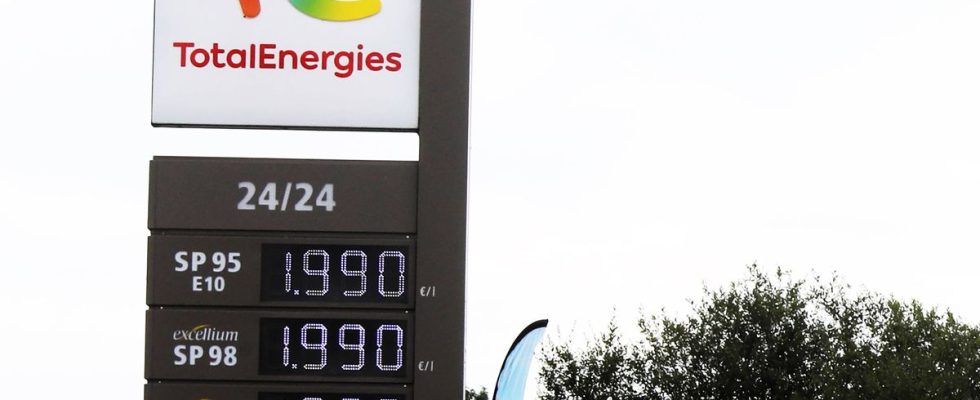“Do you often sell products at a loss? “. With a short sentence spoken at the TMC microphone, the CEO of TotalEnergies Patrick Pouyanné put to the ground the government’s latest idea to fight inflation: authorizing fuel distributors to sell at a loss. Faced with an impasse, will the government still maintain the offer, hoping that competition will play a role, reduce VAT or issue a new energy check? 20 minutes explores a few avenues, at a time when the outcry is unanimous.
In committee at the National Assembly, Carrefour CEO Alexandre Bompard assured that his group “will not sell at a loss”. E.Leclerc and Intermarché followed suit. “It’s a cartel, even if the word is a bit strong, in which everyone has an interest in promising that they will not lower prices,” laughs Christian Gollier, director of the Toulouse School of Economics.
Should we therefore already bury the government’s project? Not necessarily, for the Belgian economist. “In practice, it can be tempting not to play the game when everyone is keeping the price high,” he notes. “A brand in difficulty like Casino could take advantage of this to gain publicity,” imagines Philippe Crevel, economist and president of the Cercle de l’Epargne. The latter also recalls that “the ban on selling at a loss is linked to the sale of fuel, low prices served to attract and retain customers” a few decades ago.
Maintaining a low price, a pipe dream
However, he warns about the effectiveness of the measure for consumers’ wallets. “If distributors sold fuel at a loss, they would sell elsewhere, but where? On the price of pasta? » The government’s balancing act on purchasing power could thus turn against it, even if Christian Gollier welcomes the desire to “make this law without listening to the sirens of companies”. “They put themselves in a trap,” judges Philippe Crevel, while the fight against the rise in fuel prices has been pursuing the government for several years now. In the short term, if distributors do not play the game of selling prices, there would in fact only be three levers in government, two of which concern lower taxes.
The first tax that the government could reduce is the one called the Internal Consumption Tax on Energy Products (TICPE), but “this means less revenue for the State and local authorities”, analyzes the president of the Cercle de l’Epargne . The second, put forward by the oppositions, is VAT. “It costs billions of euros for little social benefit. Do we really want to allow the rich to use their SUV more? », tackles Christian Gollier. “Ultimately, we will have to raise the price of fossil fuels to finance and organize the transition to electricity,” he says. However, “in France and in Europe, we have not reduced our consumption. There is an inconsistency in promising a low price” in the face of the changes demanded by the climate crisis.
Philippe Crevel also denounces the “headlong rush” of the government, which wants to “respond on a case-by-case basis” to the problem of purchasing power. As a result, “we have difficulty returning to market prices”. Because cutting back on margins is only the latest measure to prevent diesel from soaring above the symbolic bar of two euros per liter, after the price shield, then the overall rebate at the pump, paid by the State, and a dedicated check for low-income households. The last solution in the hands of the government would be to issue a new check, precisely. A “much better instrument”, which costs less and proves more effective than “indiscriminate aid”, believes Christian Gollier. “There is a purchasing power problem among households with the lowest incomes, we must resolve this problem rather than offering a solution to everyone which is not desirable on a collective level.”

